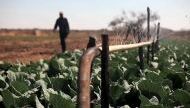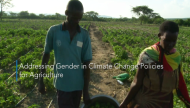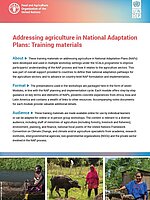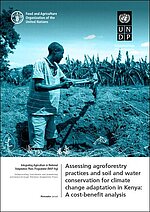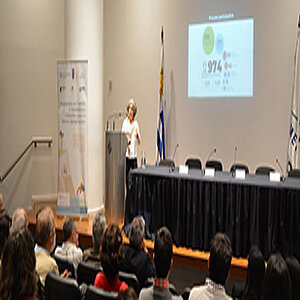Adapting Agriculture in a Changing Climate
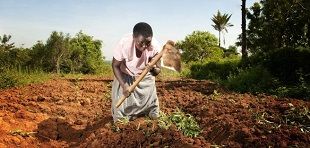
Agriculture is unrivalled in its potential to simultaneously address poverty, hunger and climate change.
While the 21. Conference of the Parties (COP21) was the COP of decision, COP22 is the COP of action. Right now in Marrakech, countries are negotiating the implementation of the Paris Agreement. The climate change commitments put forward in (Intended) Nationally Detemined Contributions [I]NDCs show according to an analysis by the Food and Agriculture Organization of the United Nations (FAO) that agriculture is a priority, with 94 percent of countries including the agricultural sector for mitigation and/or adaptation. The mounting pressure on food systems challenges the adaptive capacity and resilience of the agricultural sectors, including crop production, livestock, aquaculture and fishery. Agriculture holds a central position in the response to climate change, as actions in this sector represent not only a political, economic and moral imperative, but also an opportunity.
Agriculture is unrivalled in its potential to simultaneously address poverty, hunger and climate change. Investments in agricultural development and across the value chain can catalyse synergies and increase benefits across economic, social and environmental dimensions, and links to 2030 Sustainable Development Agenda, and contributes to many Sustainable Development Goals.
The ‘Integrating Agriculture in National Adaptation Plans’ (NAP-Ag) programme, funded by the Federal Ministry for the Environment, Nature Conservation, Building and Nuclear Safety (BMUB) through its International Climate Initiative (IKI) and implemented by the FAO and United Nations Development Programme (UNDP), works together with ministries of agriculture and environment as well as key national stakeholders in Colombia, the Gambia, Guatemala, Kenya, Nepal, the Philippines, Thailand, Uganda, Uruguay, Viet Nam and Zambia to identify and integrate climate adaptation measures for the agriculture sectors including forestry and fisheries into relevant national planning and budgeting processes.
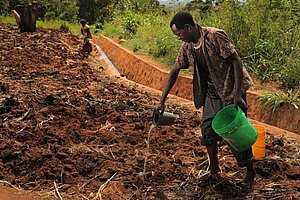
NAP-Ag aims at building capacities, developing integrated roadmaps for NAPs, improving evidence-based results and mainstreaming gender in adaptation planning as well as advocating and sharing knowledge on climate change adaptation in the agriculture sectors.
This four-year initiative, launched in 2015 with a budget of 15 million euros, is gaining prominence for being innovative and potentially catalytic among least developed and developing countries in global forums organized by UNFCCC, the Least Developed Country Expert Group and the Adaptation Committee.
The link has been copied to the clipboard
Contact
IKI Office
Zukunft – Umwelt – Gesellschaft (ZUG) gGmbH
Stresemannstraße 69-71
10963 Berlin
Related Videos
Related Publications
-
 06/ 2023 | Educational material
06/ 2023 | Educational materialAddressing agriculture in National Adaptation Plans: Training materials
English (PDF, 3 MB)




